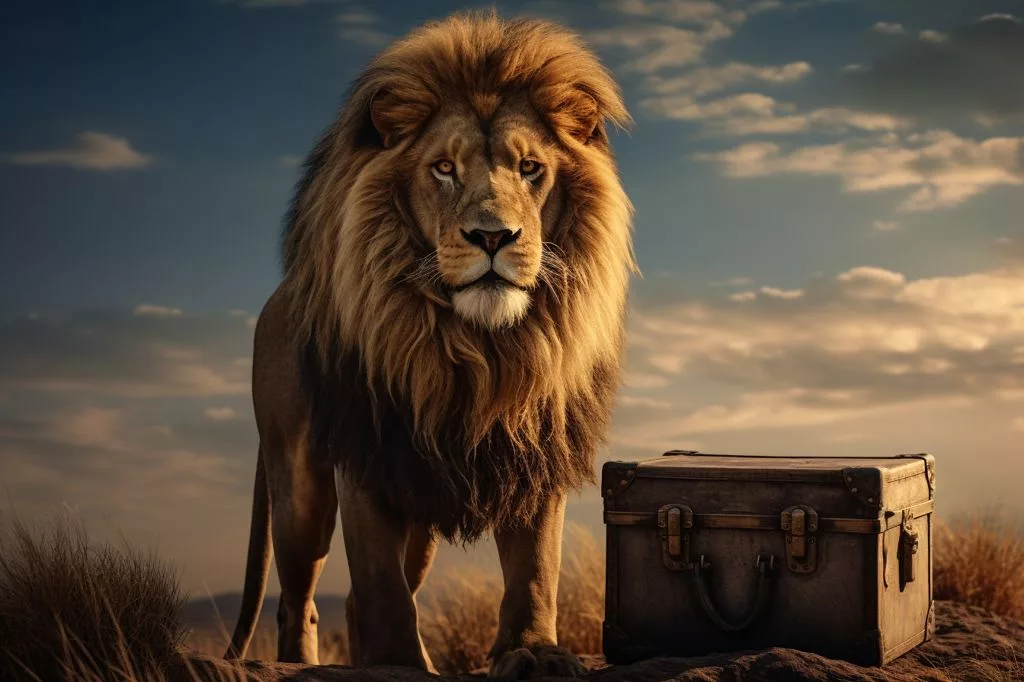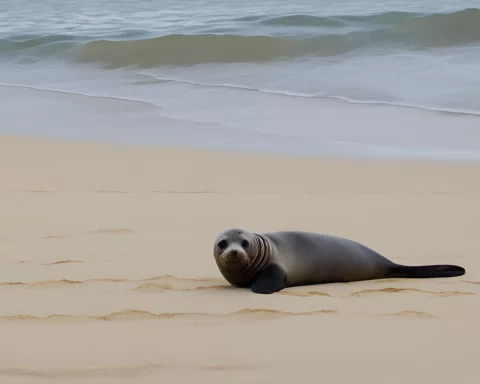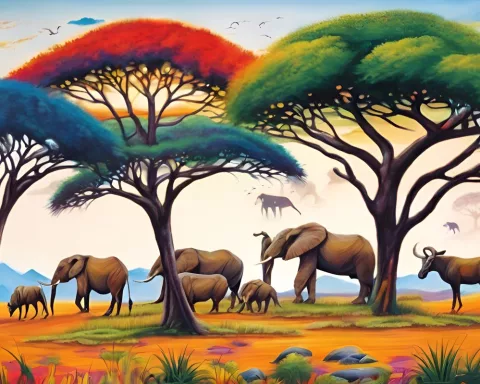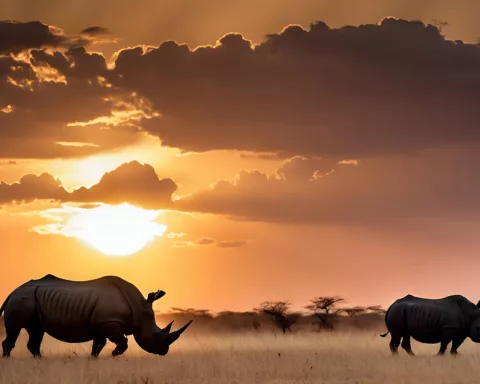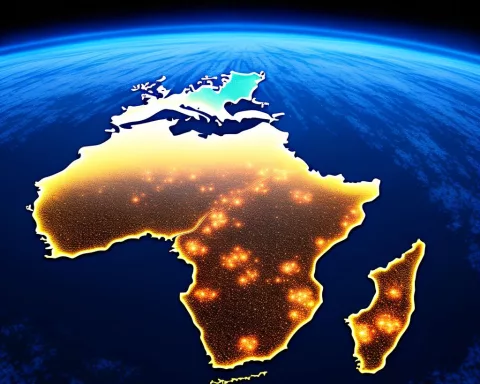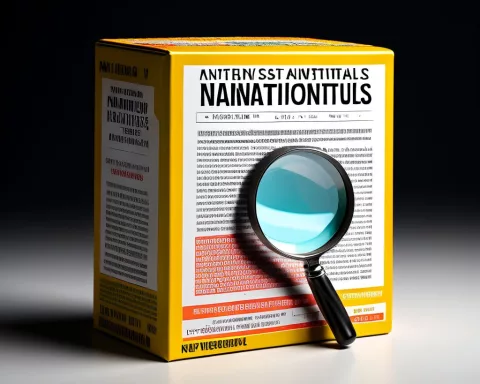The Lion Protection Fee is a proposed fee to be imposed at border entry points in South Africa, with the proceeds going towards wildlife conservation. It could potentially replace revenue from trophy hunting, with lions chosen as the primary focus. Researchers have found that the funds raised from the Lion Protection Fee could potentially match or even exceed the current revenue from trophy hunting in the country. This approach offers an opportunity to reshape conservation strategies in South Africa and move towards a more sustainable and compassionate future.
What is the Lion Protection Fee and how could it replace revenue from trophy hunting in South Africa?
The Lion Protection Fee is a proposed fee to be imposed at border entry points in South Africa, with the proceeds going towards wildlife conservation. It could potentially replace revenue from trophy hunting, with lions chosen as the primary focus. Researchers have found that the funds raised from the Lion Protection Fee could potentially match or even exceed the current revenue from trophy hunting in the country.
The Controversy Surrounding Trophy Hunting
Trophy hunting remains a divisive subject within wildlife conservation. The practice commonly involves chasing and killing large or iconic species for the purpose of obtaining a trophy, such as the animal’s head, horns, or hide. While most people support putting an end to this practice, policymakers and academics continue to debate its potential benefits, particularly the financial incentives it might provide to local communities and landowners.
In response to this ongoing discussion, South Africa is currently pursuing a more sustainable and ethically-centered approach to wildlife conservation. Researchers have been prompted to examine the feasibility of a “lion protection fee” imposed at border entry points. This fee could replace the income generated from trophy hunting if it were to be prohibited, with lions chosen as the primary focus due to their wide appeal and significance in the trophy hunting world.
A study with 907 participants who have visited or intend to visit South Africa found that an impressive 80% supported the implementation of a lion protection fee. By analyzing this feedback under two scenarios, researchers concluded that the funds raised could potentially match or even exceed the current revenue from trophy hunting in the country.
The Need for a Sustainable and Ethical Approach
This research comes at a critical juncture, as South Africa initiates public policy consultations on sustainable and ethically-driven wildlife conservation. Trophy hunting has faced criticism for its competitive nature and related animal welfare concerns, such as the intense stress animals experience during the hunt and the use of methods causing prolonged suffering.
Some argue that trophy hunting promotes conservation through income generation, reducing human-wildlife conflicts, and supporting anti-poaching efforts. However, others maintain that the practice could hinder conservation by targeting specific animals and interfering with species population dynamics and social structures. Additionally, doubts persist about whether the revenue from trophy hunting actually benefits local communities and those on the front lines of conservation efforts.
The Potential of the Lion Protection Fee
Researchers surveyed respondents from foreign countries and African regions who had visited or would consider visiting South Africa in the future. In the first scenario, overseas visitors would pay between US$6 and US$7 per day for up to six days, while Southern African tourists would contribute between US$3 and US$4. The second scenario proposes a one-time departure tax: US$6 for all foreign visitors leaving by land or sea and US$33 for air passengers.
Based on these scenarios, the funds collected could equal or even surpass the US$176.1 million currently generated by trophy hunting in South Africa each year. Although a 15% drop in tourism could result from the fees, increased visits from travelers previously deterred by trophy hunting may offset this decline. A 2021 European Union survey supports these findings, as it revealed that 84% of respondents strongly opposed the trophy hunting of African wild animals.
A New Path for Wildlife Conservation
The introduction of a lion protection fee could enable a responsible transition away from trophy hunting without adversely affecting wildlife and dependent communities. However, this approach necessitates careful consideration of various factors, such as administrative logistics, changes in visitor numbers, and public trust in the institutions managing the funds.
Tourism taxes are not a novel concept; currently, 22 countries impose taxes on tourists to preserve their natural and cultural heritage. With South Africa at a crucial point in its approach to biodiversity and ethical wildlife tourism, the lion protection fee offers an opportunity to reshape conservation strategies and move toward a more sustainable and compassionate future.
1. What is the Lion Protection Fee and how could it replace revenue from trophy hunting in South Africa?
The Lion Protection Fee is a proposed fee to be imposed at border entry points in South Africa, with the proceeds going towards wildlife conservation. It could potentially replace revenue from trophy hunting, with lions chosen as the primary focus. Researchers have found that the funds raised from the Lion Protection Fee could potentially match or even exceed the current revenue from trophy hunting in the country.
2. What is trophy hunting and why is it controversial?
Trophy hunting involves chasing and killing large or iconic species for the purpose of obtaining a trophy, such as the animal’s head, horns, or hide. It remains a divisive subject within wildlife conservation. While some argue that trophy hunting promotes conservation through income generation and anti-poaching efforts, others maintain that the practice could hinder conservation by targeting specific animals and interfering with species population dynamics and social structures. Additionally, there are concerns about animal welfare and doubts about whether the revenue from trophy hunting actually benefits local communities.
3. What is the current approach to wildlife conservation in South Africa?
South Africa is currently pursuing a more sustainable and ethically-centered approach to wildlife conservation. Policymakers and academics are debating the potential benefits of trophy hunting, particularly the financial incentives it might provide to local communities and landowners. Researchers are examining the feasibility of a “lion protection fee” imposed at border entry points, which could replace the income generated from trophy hunting if it were to be prohibited.
4. What is the purpose of the lion protection fee?
The lion protection fee would be imposed at border entry points in South Africa, with the proceeds going towards wildlife conservation. It could potentially replace revenue from trophy hunting, with lions chosen as the primary focus due to their wide appeal and significance in the trophy hunting world.
5. Who supports the implementation of a lion protection fee?
A study with 907 participants who have visited or intend to visit South Africa found that an impressive 80% supported the implementation of a lion protection fee. Respondents were from foreign countries and African regions who had visited or would consider visiting South Africa in the future.
6. How much would visitors contribute to the lion protection fee?
Under two proposed scenarios, overseas visitors would pay between US$6 and US$7 per day for up to six days, while Southern African tourists would contribute between US$3 and US$4. The second scenario proposes a one-time departure tax: US$6 for all foreign visitors leaving by land or sea and US$33 for air passengers.
7. Could the funds raised from the lion protection fee match or exceed the current revenue from trophy hunting in South Africa?
Yes, researchers have found that the funds raised from the Lion Protection Fee could potentially match or even exceed the current revenue from trophy hunting in the country.
8. What are some considerations for implementing the lion protection fee?
Implementing the lion protection fee would require careful consideration of various factors, such as administrative logistics, changes in visitor numbers, and public trust in the institutions managing the funds. However, tourism taxes are not a novel concept, and currently, 22 countries impose taxes on tourists to preserve their natural and cultural heritage. With South Africa at a crucial point in its approach to biodiversity and ethical wildlife tourism, the lion protection fee offers an opportunity to reshape conservation strategies and move toward a more sustainable and compassionate future.


